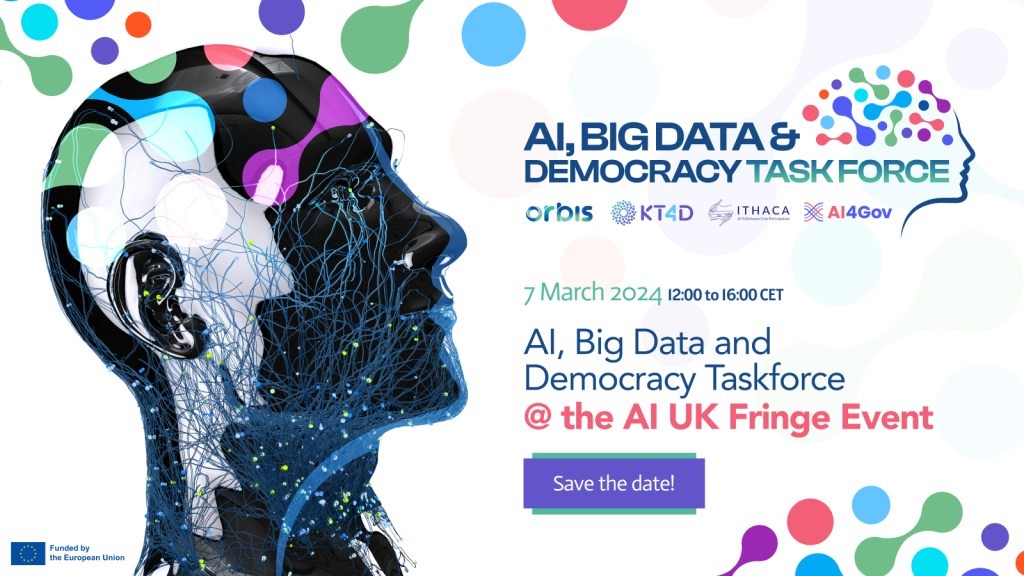Artificial Intelligence (AI) and Big Data technologies have become integral parts of our society, influencing various aspects of democratic governance and communication. However, alongside their potential benefits, they also pose challenges to democratic values and principles. Addressing these challenges requires a comprehensive approach known as responsible AI.

The “AI, Big Data, and Democracy Task Force” is a collaborative initiative comprising projects such as AI4Gov, ITHACA, KT4D, and ORBIS. Funded to tackle the complex intersection of AI, big data, and democracy, the Task Force operates within an interdisciplinary framework. Drawing from diverse theoretical perspectives, it aims to navigate the ethical and socio-technical considerations associated with the development, deployment, and use of AI in democratic contexts.
Grounded in democratic theory, the Task Force emphasizes principles of participation, representation, and deliberation. By examining the impact of emerging technologies on democratic governance, it seeks to ensure that AI is developed and used in ways that align with human values and promote positive societal outcomes. Ethical considerations, including fairness, transparency, accountability, and privacy, guide its work, ensuring that AI technologies uphold democratic principles.
Moreover, the Task Force explores the implications of socio-technical innovations on democracy and societal structures. By integrating governance models and innovation theories, it aims to develop effective strategies for managing and regulating emerging technologies in democratic societies.
In conclusion, the “AI, Big Data, and Democracy Task Force” plays a crucial role in navigating the complex landscape of AI and big data within democratic governance. Through its interdisciplinary approach and commitment to responsible AI, it seeks to promote democratic values while harnessing the potential of emerging technologies for the benefit of society.

Funded by the European Union. Views and opinions expressed are however those of the author(s) only and do not necessarily reflect those of the European Union or the Europe Research Executive Agency. Neither the European Union nor the granting authority can be held responsible for them.